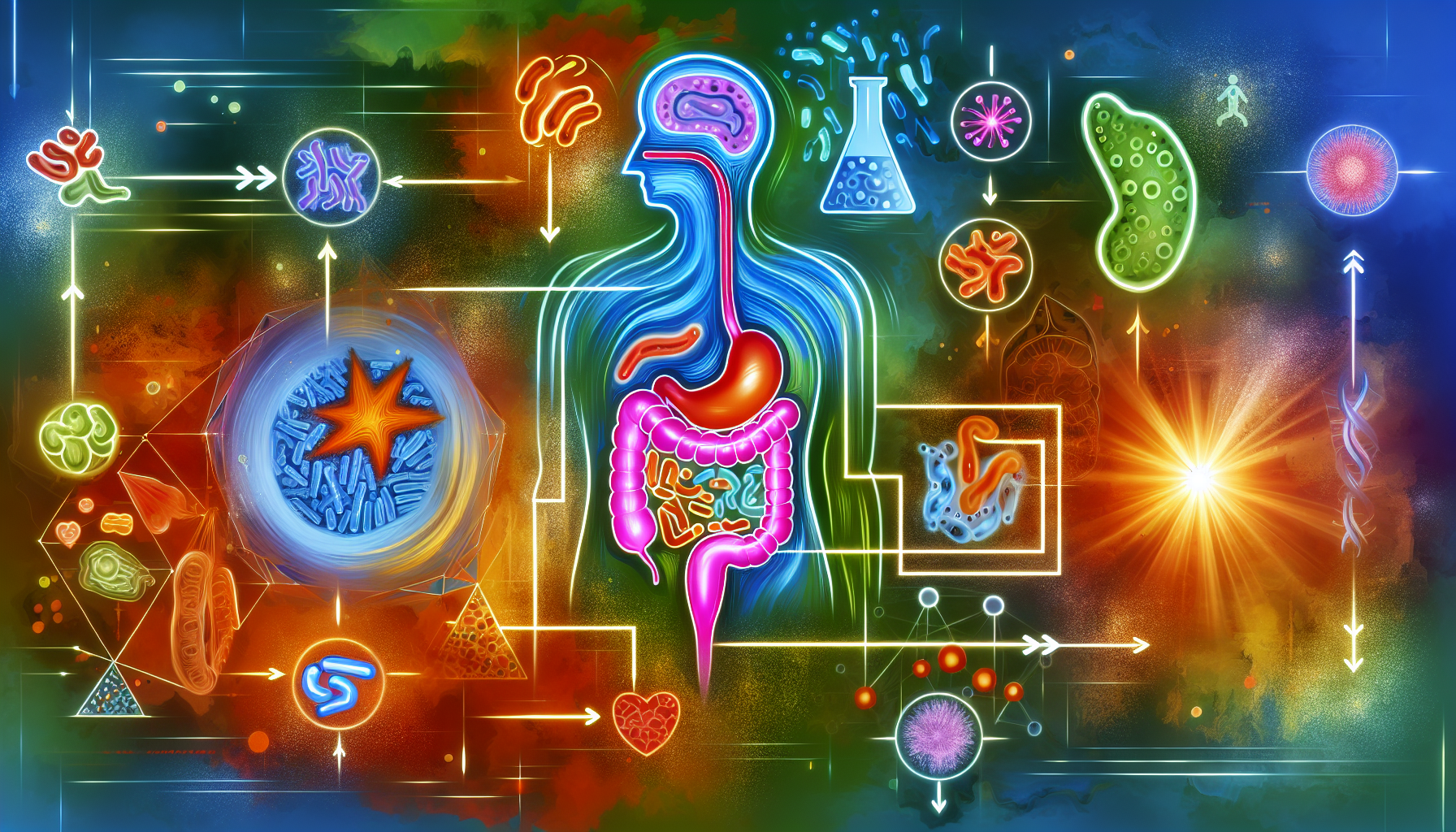The intricate relationship between the gut microbiome and the aging process has become a focal point of scientific research, offering promising insights into how we might enhance longevity and improve quality of life as we age. A groundbreaking research topic on Frontiers delves deep into the gut-aging axis, exploring the multifaceted ways in which our gut microbiota influences the aging process. This comprehensive study aims to unravel the complex connections between gut microbiota and aging, potentially paving the way for innovative therapeutic approaches to extend healthspan and prevent age-associated diseases.
Microbial Composition and Diversity: The Foundation of Gut Health
As we age, the landscape of our gut microbiome undergoes significant changes. Understanding these shifts is crucial for developing strategies to maintain optimal health throughout our lives.
Age-Related Changes in Gut Microbiota
Research has shown that the diversity and composition of gut microbiota evolve as we grow older. These changes can have profound implications for our overall health and well-being. Scientists are working to map out these alterations, identifying patterns that could serve as indicators of healthy aging or potential health risks.
Beneficial Strains for Resilience
Not all bacteria are created equal when it comes to promoting health in aging individuals. Researchers are on a mission to identify specific bacterial strains that contribute to resilience against age-related changes. These “good” bacteria could potentially be harnessed to develop targeted probiotics or other interventions aimed at supporting healthy aging.
Mechanistic Pathways: Unraveling the Gut-Aging Connection
The gut microbiome doesn’t exist in isolation; it’s intricately connected to various bodily systems through complex biochemical pathways. Understanding these mechanisms is key to developing effective interventions.
Microbial Metabolites and Inflammation
One of the primary focuses of this research is exploring how microbial metabolites influence systemic inflammation and immune function. Chronic low-grade inflammation, often referred to as “inflammaging,” is a hallmark of the aging process. By understanding how gut bacteria contribute to or mitigate this inflammation, researchers hope to find ways to modulate the immune system and promote healthier aging.
Microbiome and Cellular Aging
The gut microbiome’s influence extends to the cellular level, affecting metabolic health and the rate of cellular aging. Investigators are working to uncover the pathways through which gut bacteria impact these fundamental processes. This research could lead to novel approaches for slowing down cellular aging and promoting longevity.
Intervention Strategies: Nurturing a Healthy Gut Microbiome
Armed with knowledge about the gut-aging axis, researchers are exploring various strategies to maintain a healthy microbial balance and potentially slow down the aging process.
Probiotics and Prebiotics: Allies in Healthy Aging
The potential of probiotics and prebiotics in modulating the gut microbiome is a key area of investigation. These dietary supplements could offer a non-invasive way to influence the composition and function of gut bacteria. Researchers are evaluating different strains and formulations to determine which might be most effective in promoting healthy aging.
Dietary Modifications for Microbial Health
What we eat has a profound impact on our gut microbiome. Scientists are assessing how various dietary modifications can help maintain a healthy microbial balance. This research could lead to evidence-based dietary recommendations tailored to support gut health and healthy aging.
Health Implications: Beyond the Gut
The influence of the gut microbiome extends far beyond digestive health, potentially impacting a wide range of age-related conditions.
Gut Microbiota and Age-Related Diseases
Researchers are examining the intricate relationships between gut microbiota and various age-related diseases. This includes neurodegenerative disorders like Alzheimer’s and Parkinson’s, cardiovascular diseases, and metabolic syndromes. Understanding these connections could open up new avenues for prevention and treatment of these conditions.
Extending Healthspan and Quality of Life
Perhaps one of the most exciting aspects of this research is its potential to extend healthspan – the period of life spent in good health. By investigating how the microbiome influences overall health and longevity, scientists hope to develop strategies that not only increase lifespan but also improve quality of life in later years.
Frequently Asked Questions
Q: What is the gut microbiome?
A: The gut microbiome refers to the trillions of microorganisms, primarily bacteria, that reside in our digestive tract. These microbes play crucial roles in digestion, immune function, and overall health.
Q: How does the gut microbiome change as we age?
A: As we age, the diversity and composition of our gut microbiome typically decrease. This can lead to a less resilient and potentially less beneficial microbial community.
Q: Can probiotics help with healthy aging?
A: While research is ongoing, some studies suggest that certain probiotic strains may support healthy aging by promoting a balanced gut microbiome and potentially reducing inflammation.
Q: How can I support my gut microbiome as I age?
A: Eating a diverse, fiber-rich diet, staying hydrated, exercising regularly, and managing stress can all contribute to maintaining a healthy gut microbiome as you age.
Q: Is there a link between gut health and brain health in aging?
A: Yes, emerging research suggests a strong connection between gut and brain health, often referred to as the gut-brain axis. This relationship may play a role in cognitive function and neurological health as we age.
The exploration of microbial influences on aging represents a frontier in our understanding of the aging process. By unraveling the complex interactions between gut microbiota and various aspects of health, researchers are opening up new possibilities for enhancing longevity and quality of life. This comprehensive approach, examining everything from microbial composition to potential intervention strategies, holds promise for developing innovative therapies to support healthy aging.
As this field of study continues to evolve, it offers hope for a future where we can harness the power of our gut microbiome to age more gracefully and healthily. The insights gained from this research could revolutionize our approach to age-related health issues, potentially leading to personalized strategies for maintaining optimal health throughout our lives.
Source: Frontiers Research Topic: Microbial Influences on Aging: Insights from the Gut Microbiome
